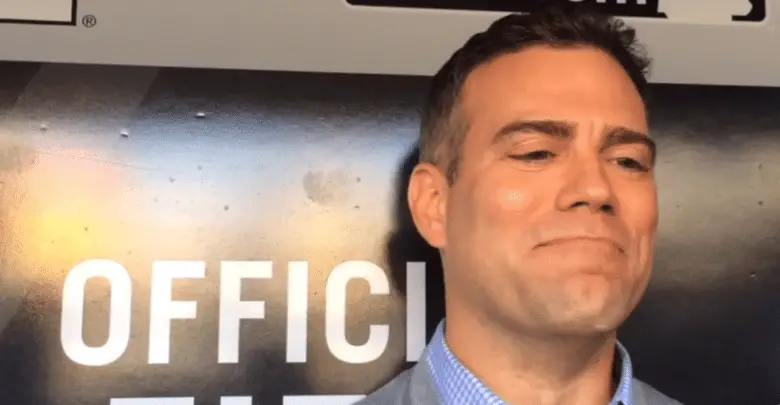
Two Solutions to Baseball’s Trading Problem
In the first feature of this two-part series, I dispelled the myth that MLB has a tanking problem. Trades, not losing for draft picks, are a dominant part of the rebuilding process, so any solution to the competitive imbalance in baseball needs to address these trades. Now I would like to propose a few such solutions.
Tanking has two distinct adverse effects. One, it is painful for fans to watch the losing season(s) that follow a team trading away all its good players as part of a rebuild. Two, tanking weakens demands for players’ services in free agency. The free-agent market has vastly underperformed expectations the past two seasons, a phenomenon the players union partly blames on the refusal of rebuilding teams to sign free agents. This is threatening baseball’s labor peace and will surely be a heated topic in the next collective bargaining discussions.
There are lots of anti-tanking ideas out there, many of which have merit but are unlikely to ever be approved by ownership in collective bargaining. For example, the union would like a tank tax or a minimum salary floor that forces teams to pay 50 percent of revenues to players on the 40-man roster. While it has potential at a surface level, this type of solution really does not dilute the benefits of rebuilding via trade. After all, teams could just sign and trade players while continuing to tank.
Thus, any solutions would have to reduce the benefits of trades while also helping players. One such solution would be granting prospects and pre-arbitration players a year of MLB service time when they are traded. As it currently stands, players cannot become free agents until they have accrued six seasons of MLB service time. During those first six years, players are under team control and are paid a fraction of their true worth, thus allowing even small-market teams to assemble winning teams on a budget. This is why young talent is so valuable.
Granting traded prospects a year of service time makes them less valuable by decreasing the amount of contractual control their new team would have over them. This disincentivizes trades by directly addressing the increased disparity between contenders and non-contenders caused by the barrage of trades between the two groups. And adding a year of service time brings players to free agency younger and teams have consistently shown they are willing to spend more in free agency on younger players. This will assuage the players union.
Another idea is linking draft picks and international bonus pools to each team’s win-loss record after elimination from playoff contention, which was first proposed in 2012 at the MIT Sloan Sports Analytics Conference. Each team begins accumulating points on the day they are eliminated from contention. Thereafter, the team gains points with each win. The team with the largest point total gets first pick, etc. The core idea is to provide eliminated teams an incentive to win late in a season rather than losing for better picks.
This rule makes late-season games, especially those between eliminated teams, more compelling. These games are often boring under current rules, and can even cause fans to actively root for their own teams to lose. I would rather create an incentive for these eliminated teams to win, thereby allowing fans to wholeheartedly root for them. It is far more exciting to watch two teams play hard to win the rights to the No. 1 draft choice, rather than to lose for it.
Notice, I did not say this rule creates an incentive for not to tank. There are lots of other draft-revamp systems that alter the draft to stop teams from tanking. While my proposal does help in that department, it is more about creating fan enjoyment out of otherwise meaningless games. There will always be a time and place for the occasional tanked season, so trying to pretend otherwise is futile.
The purpose of these two proposed rules is to 1) remove a few of the benefits of tanking so that teams choose to go that route a less often, and 2) to lessen the negative impact of tanked seasons on fans and players alike when they occur.
And because I’m not self-absorbed enough to believe I’ve got the only solutions, I’d love to hear your anti-tanking (or anti-trading) ideas in the comments.

